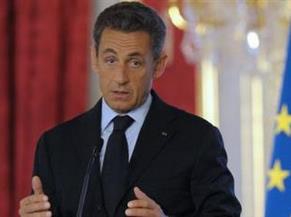|
World Jewish News

''I hope that the 27 countries of the European Union speak with a single voice. We should live up to our responsibilities together," President Nicolas Sarkozy told an annual conference of France's ambassadors.
|
Sarkozy: The EU needs to speak with 'one voice' on Palestinian statehood
01.09.2011, Israel and the World French President Nicolas Sarkozy said Wednesday that the European Union should decide en bloc whether and when to recognise the Palestinian Authority's bid for United Nations recognition as a state.
"I hope that the 27 countries of the European Union speak with a single voice. We should live up to our responsibilities together," Sarkozy told an annual conference of France's ambassadors.
The Palestinians leadership plans to formally submit a request for United Nations membership on September 20 when world leaders begin gathering in New York for the 66th session of the UN General Assembly.
The EU is divided about the issue with some countries, like France and Britain "waiting to see” while others, including Germany, Italy, Holland and the Czech republic – have already expressed their opposition to a Palestinian unilateral declaration.
Paris wants to head off a diplomatic showdown that could finish off the already paralysed peace process.
Sarkozy also said that "the role of the US is uncontested and irreplaceable, but everybody sees that it is not enough. We have to widen the circle of negotiation, think of the role and pertinence of the (Mideast) Quartet."
The French president said the world could not continue to leave the Palestinian peace process frozen while the Arab Spring forces change elsewhere in the region.
According to Dominique Moisy of the French Institute for International Relations, "there is a great temptation in France to support a vote at the UN for a Palestinian state." "Of course it is a symbolic vote, it will be vetoed by the United States. But it will create a new dynamism to accompany the new Arab policy of France," he added.
French officials say France is not trying to supplant the United States in the Middle East but some analysts suggest Paris could play a useful supporting role at a time when the US is unable or unwilling to take the lead.
EJP
|
|
